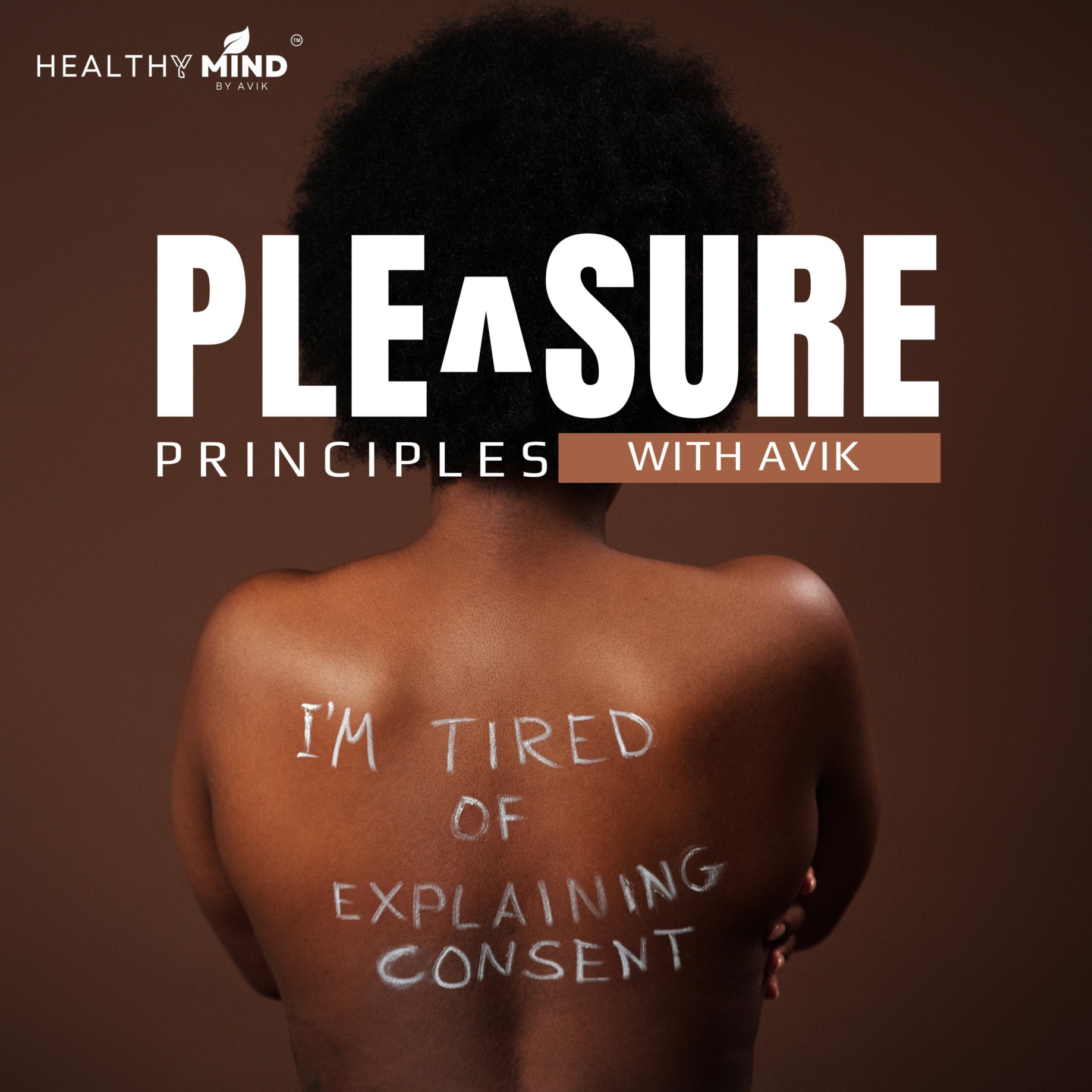
Mind Over Masculinity
Let’s stop asking men to "man up" and start asking how we can lift them up. After all, mental health is not just a women’s issue or a men’s issue—it’s a human issue.
Take the first step today. Talk, listen, and advocate. Together, we can make a difference.
Mind Over Masculinity
Redefining Fitness: Embracing Balance and Adaptability for Sustainable Health and Personal Growth with Chad Austin
Discover the art of balancing fitness with the unpredictability of life in our engaging conversation with Chad Austin, a personal trainer and best-selling author. Chad introduces us to his innovative concept of becoming a "fitness fisherman," a sustainable way to integrate fitness into our everyday lives. Learn why the real reason we might not be hitting our fitness goals isn't about effort but rather about the misalignment of our routines with our ever-changing lifestyles. This episode offers a refreshing perspective that moves away from the all-or-nothing mindset, encouraging a more balanced and consistent approach to health and fitness.
Listen as we tackle the unique challenges faced by busy professionals, and how redefining fitness can help accommodate life changes such as new jobs or personal shifts. We highlight the importance of customizing fitness plans to suit individual needs and life stages, ensuring that our approach remains practical and sustainable. Join us as we empower listeners to prioritize their health by balancing mental and physical well-being, sharing valuable insights and strategies to inspire a healthier lifestyle. Engage with our community, share your journey, and take the first step towards becoming the best version of yourself.
Automate Social Media Post
Make Short Clips From Long Videos
Loved by 4M+ marketers, entrepreneurs & creators
Create and translate videos
Create and translate videos with HeyGen's AI Video Generator
Buzzsprout Podcasting
Disclaimer: This post contains affiliate links. If you make a purchase, I may receive a commission at no extra cost to you.
-----------------------------------------------------------------------------------------------------------------
Want to be a guest on Mind Over Masculinity? Send me a message.
-----------------------------------------------------------------------------------------------------------------
Stay Tuned And Follow Us!
- YouTube - https://www.youtube.com/@healthymind-healthylife
- Instagram - https://www.instagram.com/podhealth.club/
- Threads - https://www.threads.net/@podhealth.club
- Facebook - https://www.facebook.com/podcast.healthymind
- LinkedIn - https://www.linkedin.com/in/newandnew/
what it means to be the best version of ourselves. As a man, I know that every week, we bring you inspiring conversations that challenge the way we think, live and lead. So today we are talking about something we all struggle with balancing fitness and health while navigating life's ups and downs. It's no secret that when life gets busy, our health is often the first thing we let slide. But what if the first thing we let slide? But what if there was a way to stop riding the inconsistency rollercoaster and make fitness an anchor, no matter how unpredictable life gets? So that's where today's guest comes in Chad Austin. Welcome to the show, chad.
Speaker 2:Thanks for having me on.
Speaker 1:Lovely, lovely. So, chad, before we start our conversation, I'd quickly love to introduce you to all of our listeners. Dear listeners, chad is a personal trainer, best-selling author and the owner of the Fitness Pivot in Shawnee Kansas. The owner of the Fitness Pivot in Shawnee Kansas. He's the guy who can teach you how to become a fitness fisherman someone who doesn't just get in shape, but learns how to make fitness fit into their life for long haul. So Chad's mission is to help busy professionals like you and me prioritize their health so they can show up as their best selves for their careers, families and everything else that matters most. So let's dive in this one. It's going to be the game changer. Chad, welcome to the show.
Speaker 2:Thank you, thanks for having me on here.
Speaker 1:Lovely, lovely. So, Chad Lyman, you talk about the idea of becoming a fitness fisherman. So if you can break down that, I mean what that means and how it's different from just hitting the gym or starting another workout routine.
Speaker 2:Yeah, a fitness fisherman. It comes from the saying about a fish, the saying where if you give someone a fish, you feed them for a day, but if you teach someone to fish, you feed them for the rest of their life. I've been a personal trainer for a long time now, but when I started my career I was at a big gym that had a lot of members, so I trained a lot of people and you learn right away as a fitness professional that most people are fueled by short-term motivation. So there's something coming up in their lives that they want fast results for, and while it can be rewarding to help people make fast results, it's almost equally dissatisfacting when you find out that those results are just temporary. Find out that those results are just temporary.
Speaker 2:So whenever you have a short-term goal, if you never take the time to look past it, then once that event is over, then so is all the motivation you had to work hard. So the idea of helping someone become a fitness fisherman it's starting with whatever motivation you have to get going, but it's taking the time to look deeper and look long-term. How can this become a long-term part of your life? How does it best fit in your life. So it doesn't become something that's inconsistent, it becomes something that sticks and really you use as a tool to become the best version of yourself. So a fitness fisherman is someone who can keep fitness a priority in their life, regardless of how their life changes, for the good or bad.
Speaker 1:Wow. So what's the biggest misconception people have about fitting fitness into their lives and how do you help them overcome it?
Speaker 2:Yeah, so on my website, thefitnesspivotcom. That is where, right away, you're going to get material that will help you with this problem. So, most of the time when we, when we struggle, when our desire for change and to look and feel better is at its peak and we struggle to get consistency, we struggle to get started, we're often really hard on ourselves and we shame ourselves like, well, I didn't want it bad enough or I just didn't work hard enough. And most of the time, if you're struggling to get started, it has nothing to do with any of that. It has more to do with what you're trying to do doesn't necessarily fit in your life.
Speaker 2:So, whenever a life, it's life's changes that cause us to fall off track with our fitness. And when life changes happen, we're really good at adapting, like, naturally, when it comes to our family, our career, our faith, things that are most important in our lives. But when it comes to our health, health always becomes a thing in our mind that we're putting off till later, that we're going to get to later because we think we're too busy now, and so people have to realize that doing less does not make it less of a priority. So, and as fitness, as your life changes. The way fitness fits in your life is going to change.
Speaker 2:It may look different or it may look less. You may be doing less and maybe doing more, but the golden rule is what you do for fitness has to fit in your life. If it doesn't fit, it won't stay there very long, no matter how bad you want it. So that that is the misconception that most people have to really learn. It's not you're not trying hard enough. It's not that you don't want it bad enough. It's that what you're trying to do probably just doesn't fit in your life and you need to adjust to what does fit in your life.
Speaker 1:Wow, you know that I think so many of us get stuck in that mindset of all or nothing. Either we are crushing it at the gym or completely off track. So the balance you are talking about feels like a breathe of fresh air. Yeah, so one thing that really stood out to me about your approach is how you focus on life's curveballs and those unexpected changes that throw us off. So why do you think that fitness is often the first thing people let go of during their tough times?
Speaker 2:Yeah, I think it's the way we think of it. You know, it's always something we don't have this sense of urgency because the way we think of it, you know, it's always something we, we, we don't have this sense of urgency because the way we think about fitness in our lives, we always think, well, you know, you know our, our job, our family, those things got to take first. But with fitness we can get to that at any time. We can worry about our health at any time. So we don't have as much sense of urgency.
Speaker 2:But you're doing yourself a disservice. What you have to realize, and what I try to help people realize with my business the fitness pivot is that no matter what is most important to you. So if you were asked what are your top priorities? I have asked that question a lot in studies and most people say family career are their top two.
Speaker 2:But ultimately you have to learn that no matter what your top priorities are, what is most important to you in your life you will not be able to show up as the best version of yourself if fitness is not a part of the equation too, if fitness is not a priority as well.
Speaker 2:So that is why we have to learn to adapt faster to how fitness fits in our life after it changes. So because, in order for us to show up whether things are going good or bad in life, show up as the best version of ourselves, we have to take good care of ourselves. So everything that fitness is, whatever your workouts look like, whatever your meal plans looks like, whatever you know sleep, hydration, you know meditation, everything that is part of the equation to make you your best, which is fitness, has got to be a part of your, your life. It can't be something that you're just shelving till later, because every as for all the days that you're shelving it, you're going to wait to get to later, you are getting farther and farther away from being the best version of yourself okay and um okay.
Speaker 1:So one more thing is like uh, you also talk about the cleanse and reset approach, so if you can also explain what that looks like and why it's such a powerful tool for building consistency, two coaching calls the Dorman Cleanse and the Fitness Reset.
Speaker 2:So at thefitnesspivotcom, right away, you'll get some giveaways, some takeaways to help you become the best version of yourself, something to kick you off to a good start. But one of the early things I'm going to give to you to get you started is the Cleanse and Reset, and so it's two parts. First it's redefining what fitness means to you, so redefining your definition of fitness. And so it's two parts. First it's redefining what fitness means to you, so redefining your definition of fitness, and so it's. A definition of fitness is basically what you're doing.
Speaker 2:But a lot of times people don't hear that quite right. So a better way to say it is what does fitness mean to you? And so what fitness means to us? It changes a lot as our life changes. Like what fitness meant to me 20 years ago, it's completely different to what fitness means to me right now. Um, so we.
Speaker 2:But as your life changes, what your definition of fitness and what fitness means to you changes. So you have to kind of balance with that and you have to adjust with that. So the first thing we do is we redefine what does fitness mean to you right now, now that your life has changed and the reset part that is just figuring out how fitness fits in your life. So if you're struggling with I'm too busy or you know I don't have any time or those kind of excuses, it's because you don't. You haven't reestablished how fitness fits in your life.
Speaker 2:So the fitness reset is just a way for you to take a step back, take a bird's eye view of your life and take a look at your schedule, your family, your career, your faith, everything that's most important to you. What is your commitments? What does your life look like right now? And then decide how does fitness fit in there? How does it fit? What does it look like? How long is it? All those things. So that cleanse and reset that's an important thing, that it's one of those things where we give you the tools, we teach you how to do it once and then you know how to do it for the rest of your life and every time a life change happens, um, you can cleanse and reset and adjust to that change, so that you don't end up on the inconsistency roller coaster.
Speaker 1:you're able to roll with the punches and keep fitness a part of your life yeah, I think a lot of people need permits, permission to reset without feeling like they have failed. So, uh, yeah, that's a mindset shift Alone could be a game changer for so many listeners. Yeah, so, chad, you were an expert at boasting excuses and let's be real, I am too busy is the king of all of them. So what's your go-to strategy for helping people overcome the I am too busy excuse?
Speaker 2:Yeah, this is a big one. We all face the I am too busy excuse. Yeah, this is a big one. This is, we all face the I'm too busy, or it always shows up with our health, but it's just kind of something that comes up all the time. With us is this tough obstacle, and most of the time, what I've learned is when people say I'm too busy, what they really mean is I'm too busy to work out like I used to.
Speaker 2:So a life change has happened, whether it be any, whether it be good or bad, big or small. It could be so many different things. I got married, divorced, I moved, I got fired, I got promoted, my job has more travel, my job is more sedentary. Now, whatever it is, it's changed how fitness fits in your life. And now some time has gone by and fitness has not been a part of your life and you're ready to get back in shape.
Speaker 2:But you're stuck thinking is, whenever we're ready to get started again, we always think of the time at the last time fitness did fit or the last time we got great results and whatever we did for our fitness routine at that time. That becomes the bar, that's the precedent. So like doing anything less than that is not doing enough, and it's almost like we'd be ashamed of it. So we can't, we don't have time, is what we land on, and we'll just get to it later.
Speaker 2:If I can't do that, then I don't have time, and we have to realize that what fits in your life now may be less than what you did then, and that doesn't make it less of a priority. All it means is it fits differently right now, and that's okay. But that is how we get stuck on. The I'm too busy excuse is because we we have this bar already set for ourselves and a lot of times at that bar. If what we did then doesn't fit in our life, then we're just stuck on. Well, I just can't do it right now. I have to wait to have more time, and that day may not come for a long time time?
Speaker 1:yeah, exactly, and yeah so. You have said that people often need to redefine what fitness means to them. So why is that redefinition so important, especially for busy professionals?
Speaker 2:well in order to get results. Um, you know, fitness, fitness is not one size fits all right. And so just because something worked for somebody else doesn't mean it's going to work for you. And just because something worked for you in the past doesn't mean it's going to work for you now, because your life is different. So what you do, not only does it have to fit in your life, it has to be customized to you.
Speaker 2:So this time of year, when there's so many promises out there, fast results with little or no work on your part, instant gratification is all over the place.
Speaker 2:And as our desire for change and the look and feel better reaches its peak, we are the easiest prey for for this kind of thing. And if you don't want to just be, if you don't want your end result just to be disappointed and to and to feel like you got ripped off or didn't get what you paid for, then you have to know that your last line of defense to make sure you don't get scanned by something that's not right for you, is to know does it fit you, is it customized to you? If everyone doing the program or using the supplement, whatever it is, if everyone doing it is doing the exact same thing, then it's probably not going to fit to you If it doesn't take into factor your fitness goals or your fitness history, your lifestyle, your schedule, your age and the fitness level that you're at right now. If it doesn't take any of that into account, then it's not customized at all to you and it probably won't fit that's a great perspective.
Speaker 1:I would say yeah and um also on this. When we're talking about the fitness thing, uh, like, let's talk about one of your signature lessons, like how to avoid turkey bacon and uh, become a donut slayer. What's the story behind that? I mean, how do these lessons tie into your philosophy on the fitness?
Speaker 2:Yeah. So turkey bacon is my word for instant gratification. So I use turkey bacon because I just I hate turkey bacon. It's not bacon, it's not real right. It's one of those things where you it looks like the real thing and then you get it and you're just really disappointed because you realize right away it's nothing like what you thought it was, and so that is.
Speaker 2:That is exactly what instant gratification is All the promises of fast results with little or no work on your part. You have to know there's no easy button, there's no shortcut. When it comes to fitness, everyone has to put in the work. Um, you just have to figure out how the work fits for you and what it looks like for you. But there is no shortcut. If you're just end up, you're just end up being disappointed because you're going to get something that's not at all what you were wanting, actually wanting. But that's what. That is what turkey bacon is. It's instant gratification. So, like that last line of defense I told you about, that has got to be something that helps you, because when it's it's when you fall for turkey bacon, by the way, it is a lot of ways it's a good sign, because it means that your desire for change and your desire to your, your motivation to look and feel better is there. So when you don't get results, it's not because you didn't want it bad enough. You clearly want it very bad, and it's just you haven't figured out the right thing for you yet is the only problem? The donut slayer? The donut slayer is just.
Speaker 2:Donuts are obstacles that we can't see coming, curve balls, if you will. So like there are certain obstacles when you start a fitness program, there are excuses and obstacles and challenges that you're going to face that you know are going to show up because our track history tells us so everyone we've done a fitness program in the past or when we've gotten in shape in the past. We know that these certain things are going to pop in our lives and are going to make us be challenging at times. So we can plan for those things because we know we expect them. But donuts are the curve balls that we cannot, the unexpected challenges that we can't predict, that we cannot plan for. And it's just one of those things that we have to learn that when plan A does not work anymore, how do you pivot to plan B? So on the fitness pivot. That's part of what the fitness pivot is about. When plan A no longer fits, how do you pivot to plan B? And that is something we just have to learn and it's a practice that you have to get better at over time. With practice, but it just comes with the no matter what mentality. So, like my, plan A will not work anymore.
Speaker 2:So I planned on working. So, for example, I planned on running this morning, but I was all ready, I opened the door and when I opened the front door it was pouring outside. So plan A may not work now I could go run in the rain. If I can't do that, and how else am I going to do it? Or maybe it was I was going to work out over my lunch break, or I was, and all of a sudden I have a work meeting that pops up, or a client uh fire, and I got a deal with, something happened, and so now that takes away my lunch break. Or I was going to work out after work and then come home, but all of a sudden I get a call from the school and my kid is sick, so I have to go and bring the kid home, and now I'm working from home the rest of the day. So that takes that away.
Speaker 2:So something happens that you could not plan for and that throws plan A out the window and becoming a donut slayer that is learning how to pivot. How can what's plan B now Now? Donut Slayer that is learning how to pivot? How can what's plan B now, now that plan A won't fit? How can I still get my workout in? How can I still make fitness a priority today? It's not going to look the same, but I can still do it Exactly, exactly, great.
Speaker 1:So what one advice you would like to give to the listeners? Who has listened today.
Speaker 2:If you're listening today and you found some good information, then be sure to go to the fitnesspivotcom. There's a right away. When you get there you'll get a make yourself a priority starter kit that stems from my bestselling book Make Fitness a Priority, and so give you some tools to get started on your journey. The big piece of advice I'd want to give to you as you start your journey is just to know that you don't have to be perfect. They're being making fitness a priority in your life. Um has nothing to do. There's no need for you to be perfect. That is an impossible bar to set.
Speaker 2:Uh, I know right now, with new year's resolutions, that is the illusion that we're under in a society that we have to be perfect. That one mistake and it's over. You might as well wait and start over next year, right, but that's not the case. Everyone is going to fail. If we get to the six weeks and they give us that stat that now that we're six weeks into the year, 90% of people have failed. Eventually we'll hear that stat this year, because we do every year.
Speaker 2:But if you're in the 10% that hadn't failed, then good for you. But your time's coming. You're going to fail too. Everybody fails, and so failing does not end your fitness journey, and it doesn't define you either. What defines you is how you respond. What makes you stronger and makes you better at showing up as your best self because of fitness is how you get back on track every time after you make a mistake. After you make a mistake, there's one thing you should think about in your head, and that is it's what I do next that counts. So how do you keep fitness a priority, not like one mistake turn into three is how do I get back on track? That's the best advice when you start a fitness journey Perfect perfect.
Speaker 1:That's really lovely, chad. Thank you so much for sharing your insights and practical strategies with us today, and I know that this conversation is going to resonate so many people out there who are trying to figure out how to make their health a priority. So, dear listeners, if this episode has inspired you, then share it with someone who needs to hear it and let us know your thoughts by leaving a review or reaching out to us on social media. And, as always, take care of your mind, body and your masculinity. I'm Yavik, your host, and I'll see you next time on Mind Over Masculinity. Till then, thank you so much. Welcome to Mind Over Masculinity, the show where we take a deeper. A deeper.


%20(1).jpg)




